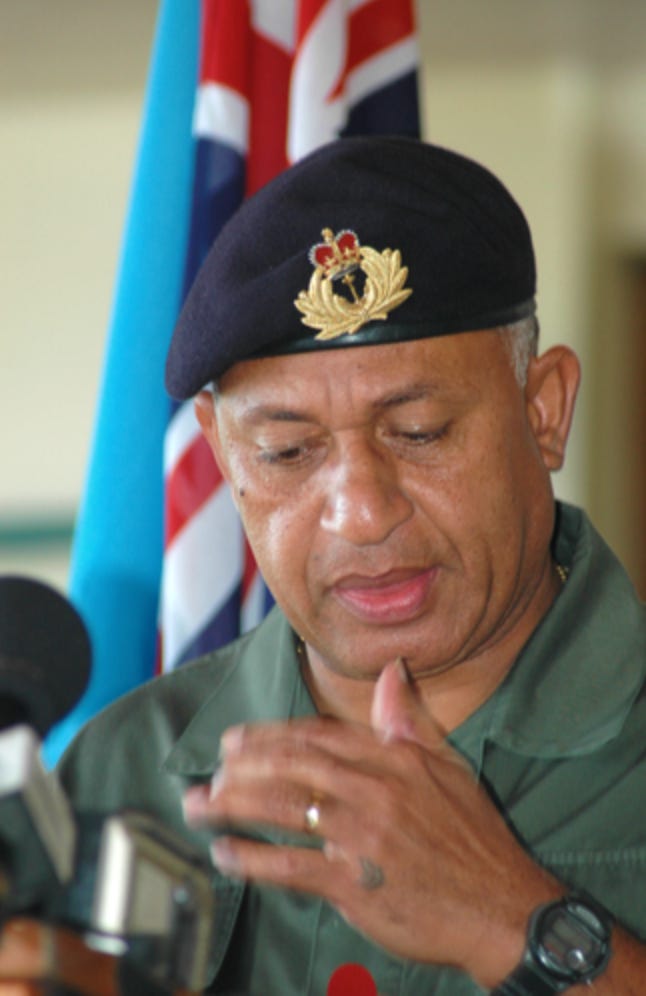By the time of the May 2006 elections, Qarase’s party was entrenched with the Fijian voters, well along the way to creating a Methodist Christian state.
Qarase was not a strategist and did not always know what was going on. Late one afternoon Dorney and I sat with him in a makeshift shed full of supporters as he conceded defeat. He had won.
Bainimarama was furious and cranked up the talk of a coup. He called press conferences at his headquarters, behind Government House. At the conferences, we would sit at a large round table and he would harangue us. He would accuse ‘Mr Qarase and his cronies,’ he would say, and accuse them of ‘dirty politics at its worst…it is cannibalistic.’ He would describe Qarase’s policies with terms like ‘ethno-nationalism’. It sounded undesirable, but was merely rhetoric with no substance.
At one press conference, I ended up sitting next to him and asking a question about the role of the military and its threat to democracy. I feared he was going to hit me. He was that irrational.
Bainimarama claimed that the elections had been rigged and corruptly won. He has never produced the evidence, even when, after his coup, he had complete control of the police and electoral files.
Although Bainimarama is an unattractive personality, with little warmth or obvious intellect, he was beginning to get followers. As Qarase was the voice of the indigenous, Bainimarama became the stalking horse for Indians. In fractionated Fiji, his strongest allies were the unlikeliest; Catholics and a Muslim sect.
Keep reading with a 7-day free trial
Subscribe to Michael Field's South Pacific Tides to keep reading this post and get 7 days of free access to the full post archives.




